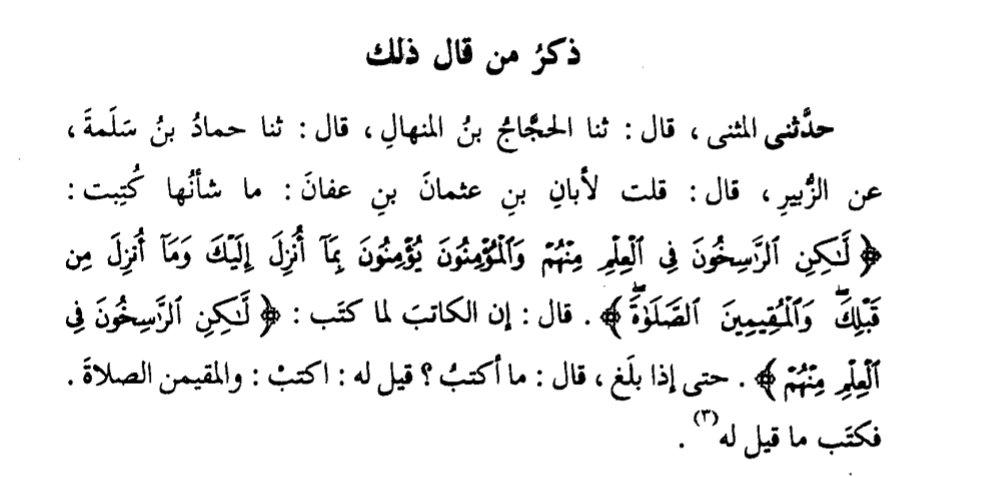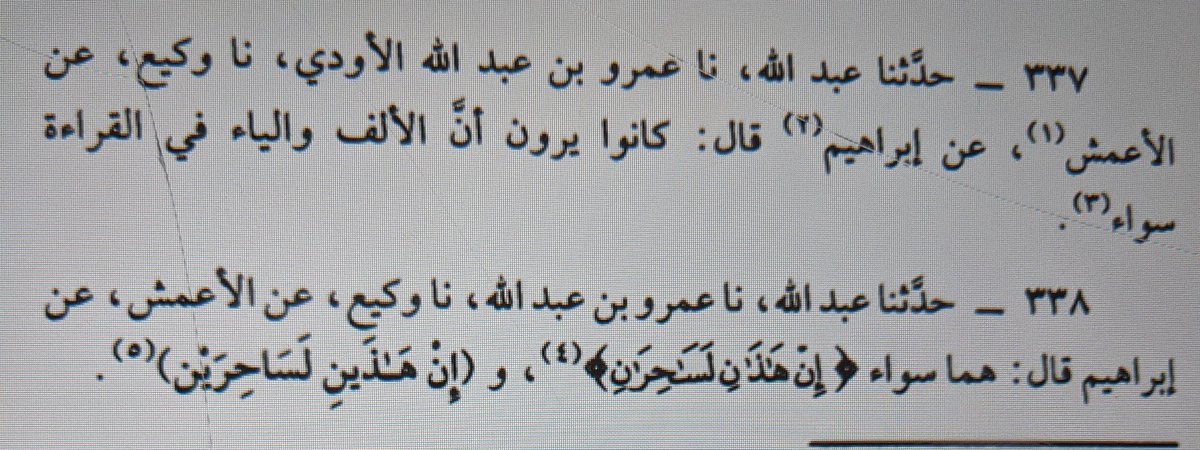1. We do have a few documented reports in the Islamic tradition about the companions seemingly criticizing or denying a Qur’anic reading.
These reports (assuming they're authentic) *are easily* understood to be based on what they were familiar with from the diverse
These reports (assuming they're authentic) *are easily* understood to be based on what they were familiar with from the diverse
readings of the Qurʾān.
The companions might reject a reading simply because they're not familiar with it...
These disagreements occurred during the life time of the Prophet PBUH as well.
The companions might reject a reading simply because they're not familiar with it...
These disagreements occurred during the life time of the Prophet PBUH as well.
2. In the tradition of teaching the Qur'an since the time of the Prophet, there is a well established statement that a person must recite precisely according to the way they were taught.
3. Ibn Jarir and other scholars addressed this particular example.
Some scholars rejected this narration.
See Abu Hayyan:
Some scholars rejected this narration.
See Abu Hayyan:
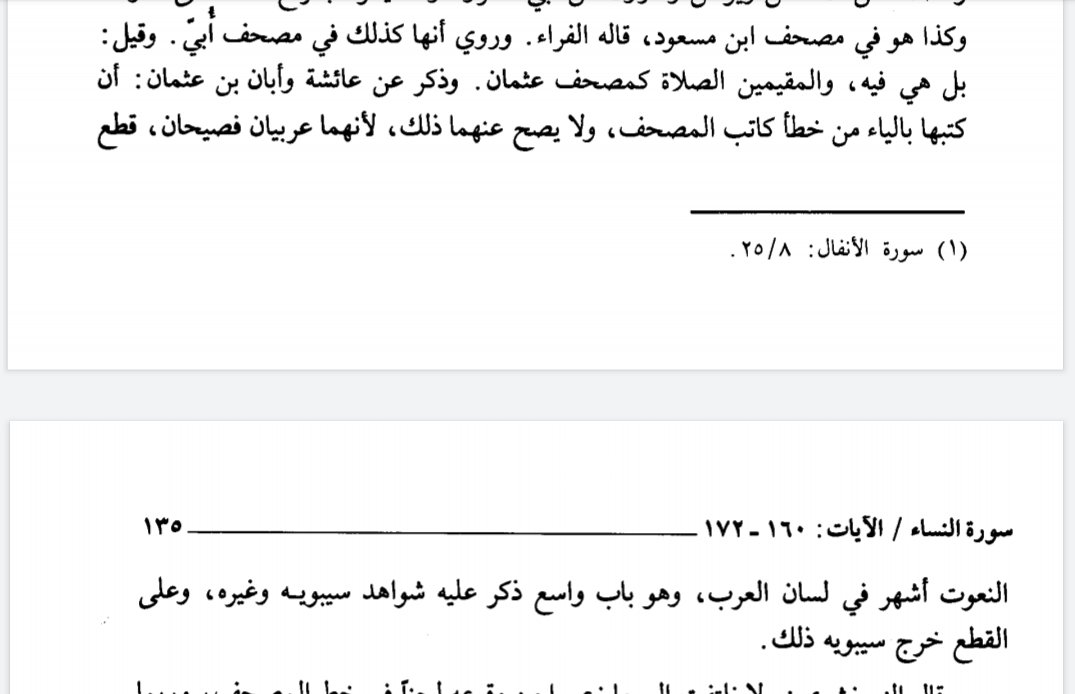
He also said that it's written
والمقيمين
In 'Ubayy's mushaf... Al-Farra' attributed this reading to Ubayy as well.
He said this can't be wrong!
والمقيمين
In 'Ubayy's mushaf... Al-Farra' attributed this reading to Ubayy as well.
He said this can't be wrong!
As for,
إن هذان
I addressed this issue before but I can't seem to find the thread.
This can be easily explained as well from grammatical point of view.
The most reasonable explanation is the following:
It's a lughah (Arabic dialect):
شرح شذور الذهب
إن هذان
I addressed this issue before but I can't seem to find the thread.
This can be easily explained as well from grammatical point of view.
The most reasonable explanation is the following:
It's a lughah (Arabic dialect):
شرح شذور الذهب
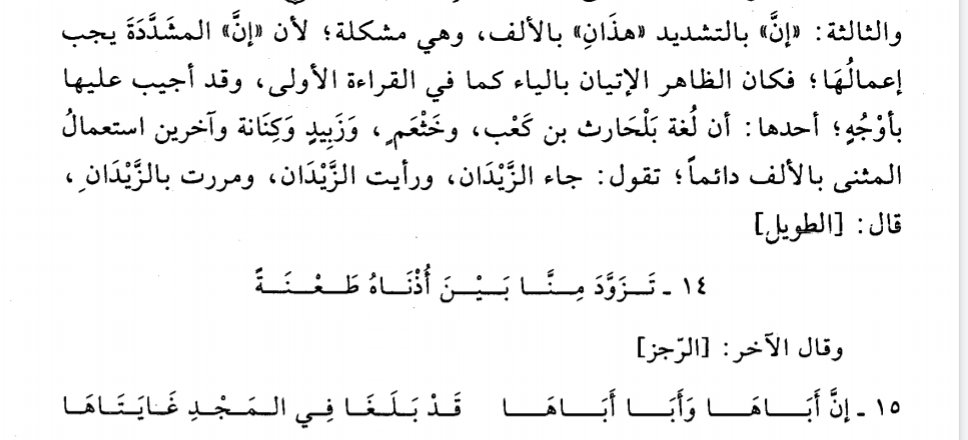
Those who say that this is a "grammatical error", they need to prove that the Arabs did not speak according to this dialect. In other words, this dialect didn't exist in the Arabic language.
4. Abu 'amr himself said that if he had the choice of reading in a way other than what was already transmitted/read, he would've read according to his own preference...
Source:
سير أعلام النبلاء، الذهبي
Source:
سير أعلام النبلاء، الذهبي

5. Arabic scholars might reject a reading because it doesn't agree with the Arabic grammar they're familiar with.
Others might accept it...different grammatical doctrines.
I really wish I have the time to explain this in more details.
Others might accept it...different grammatical doctrines.
I really wish I have the time to explain this in more details.
These texts from scholars regarding the criticism of some readings should be understood in their historical context.
Did the readers always, in principle, follow their regional codices?
Answer: (it's a screenshot of a book I'm still working on)
Answer: (it's a screenshot of a book I'm still working on)
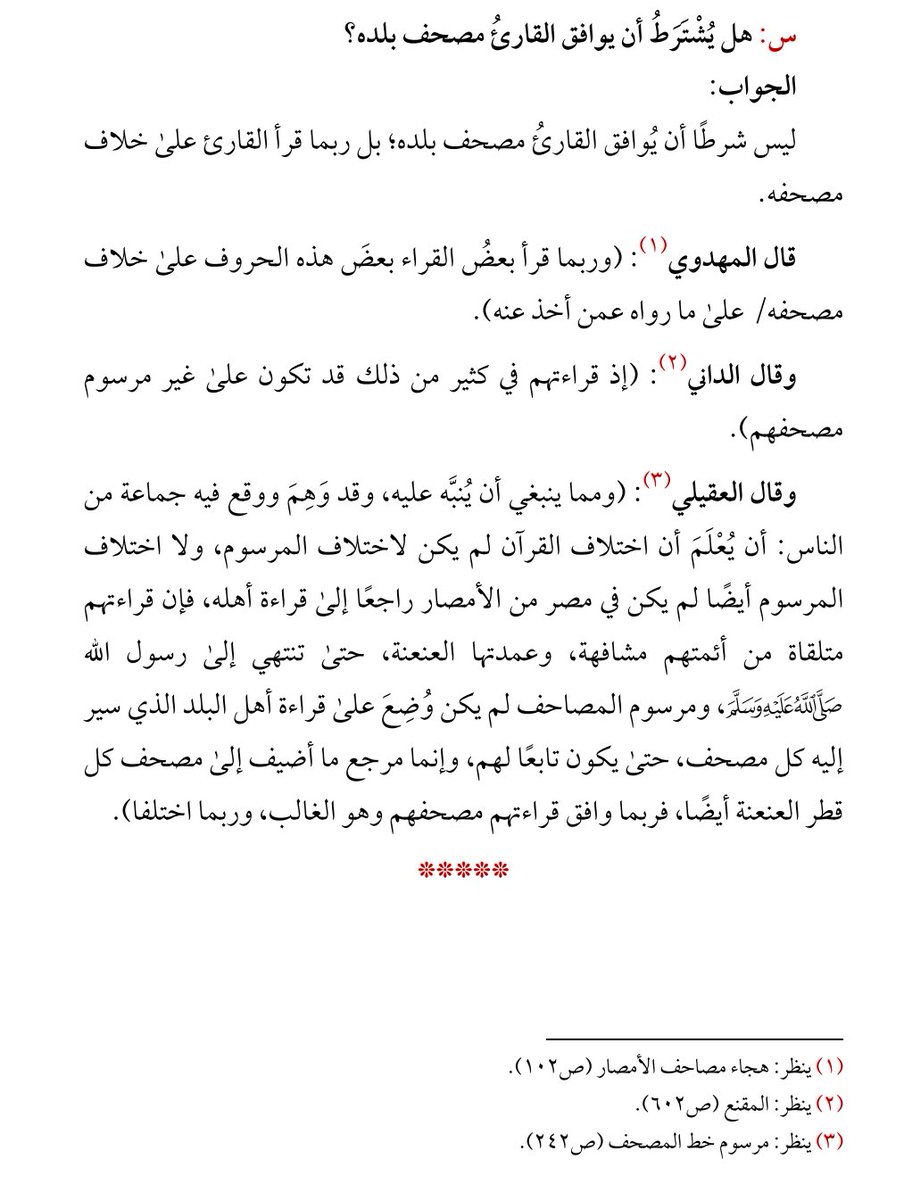
The scholars of Qir'aat/Rasm made it very clear that occasionally the readers/Qurra' don't follow the regional rasm...
Ibn Al-Jazari also stated that this is fine since it's based on riwayah:
Ibn Al-Jazari also stated that this is fine since it's based on riwayah:

• • •
Missing some Tweet in this thread? You can try to
force a refresh


